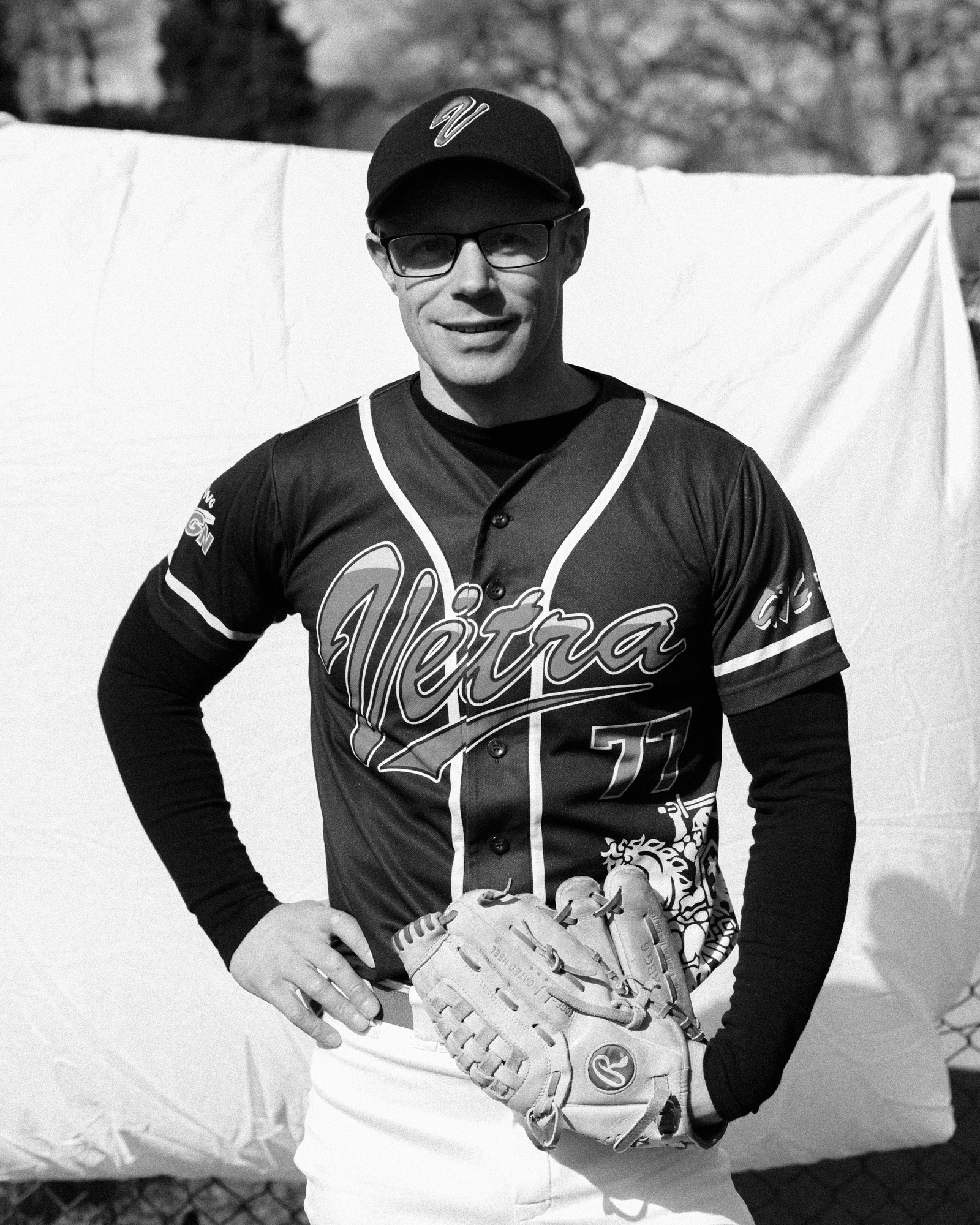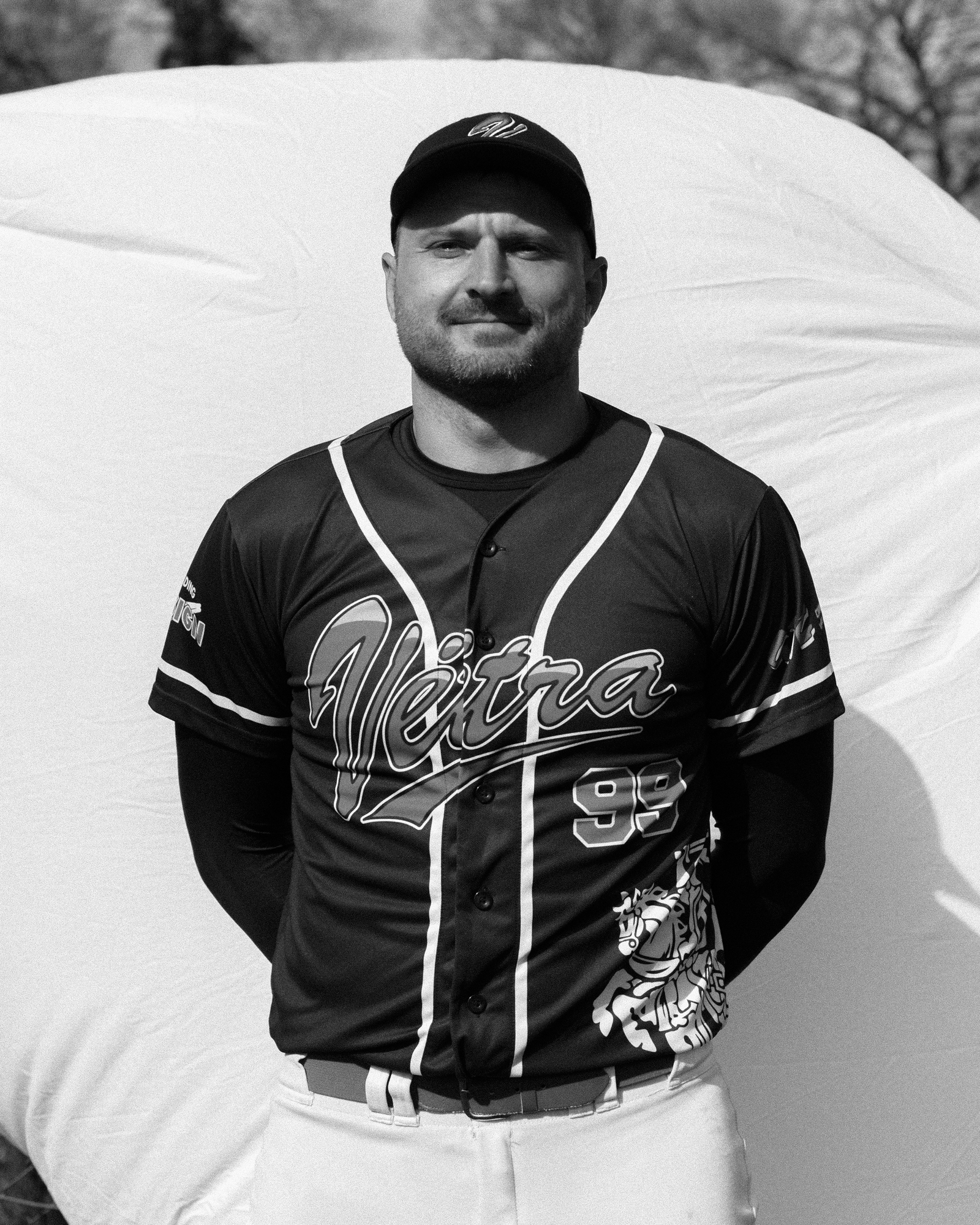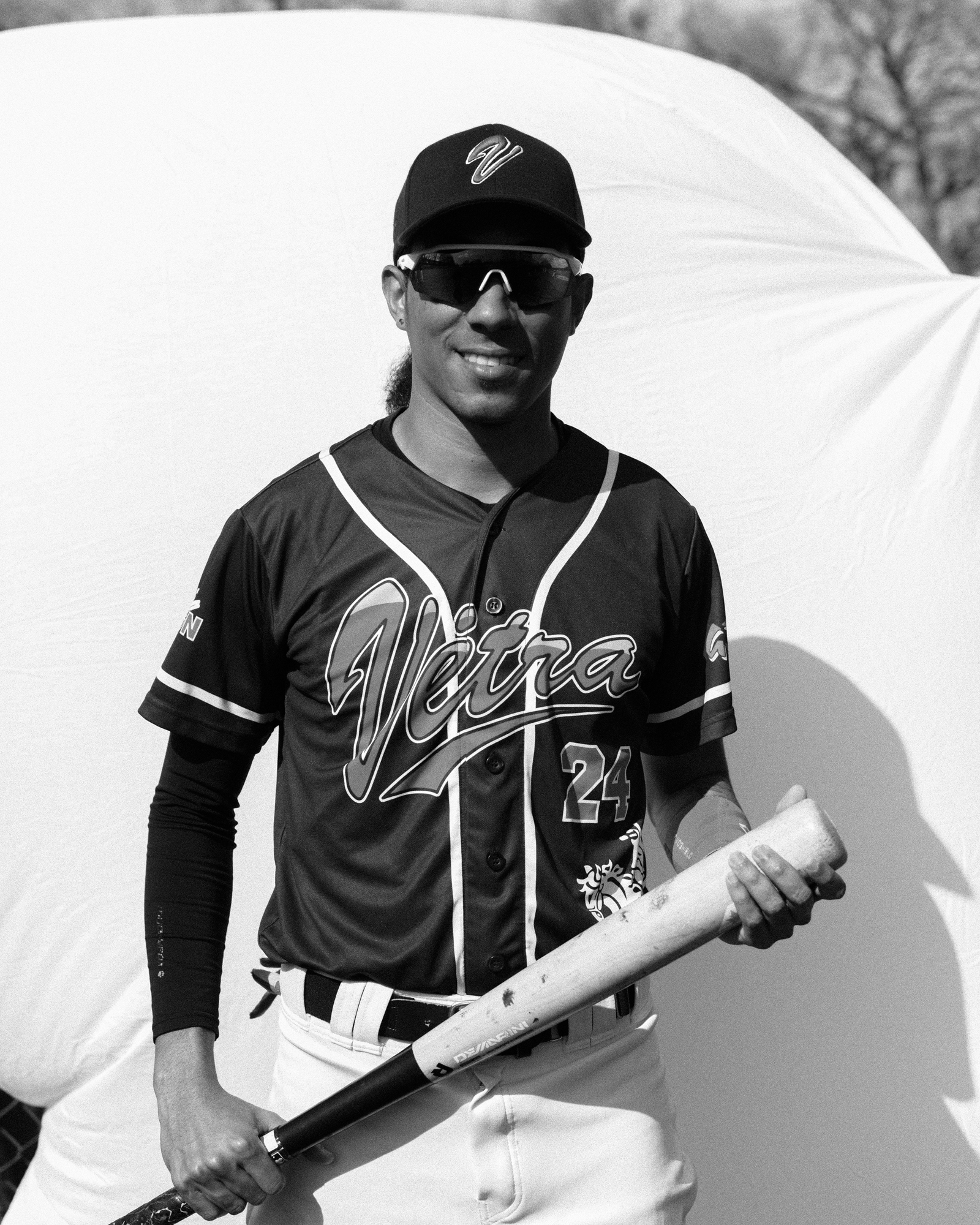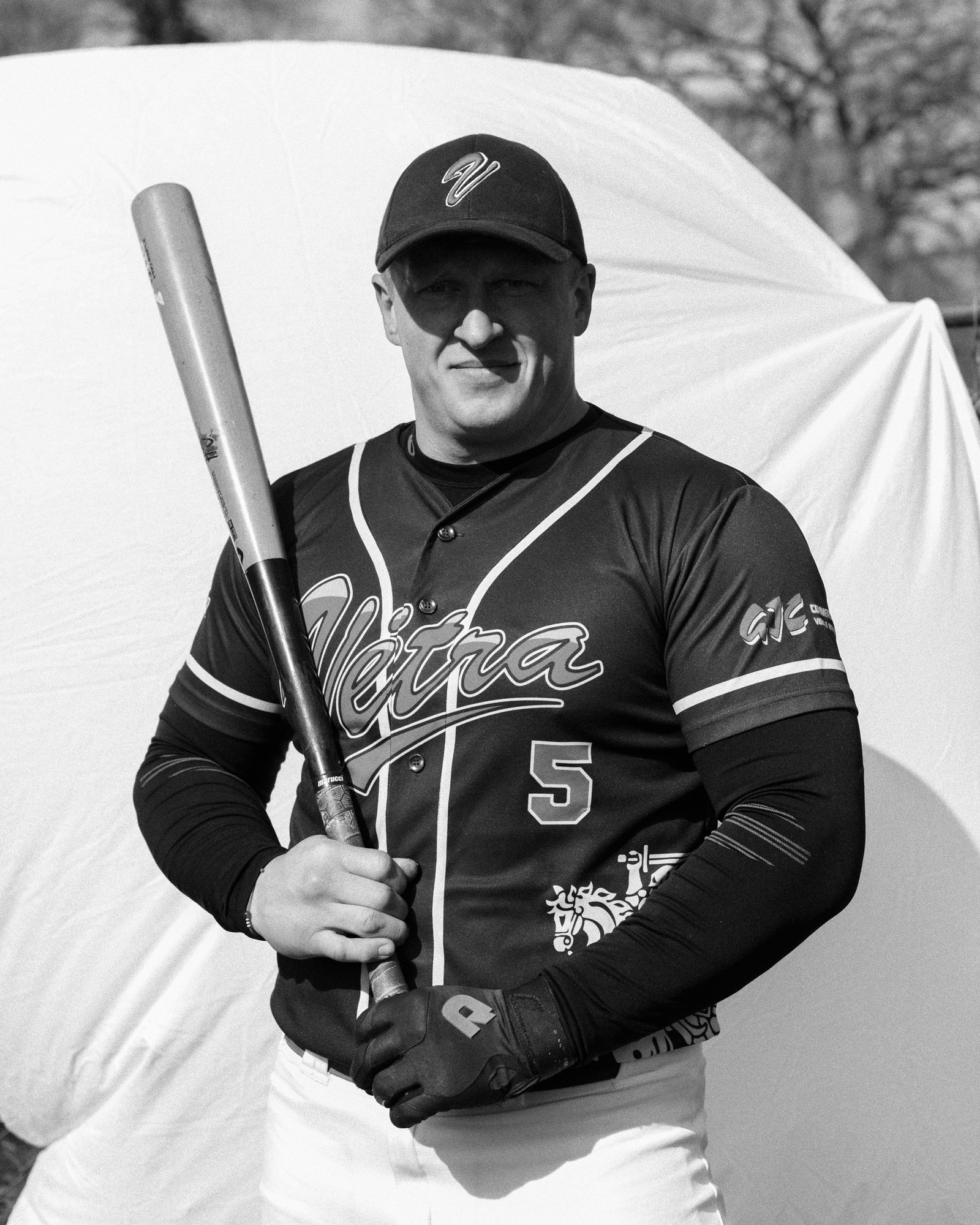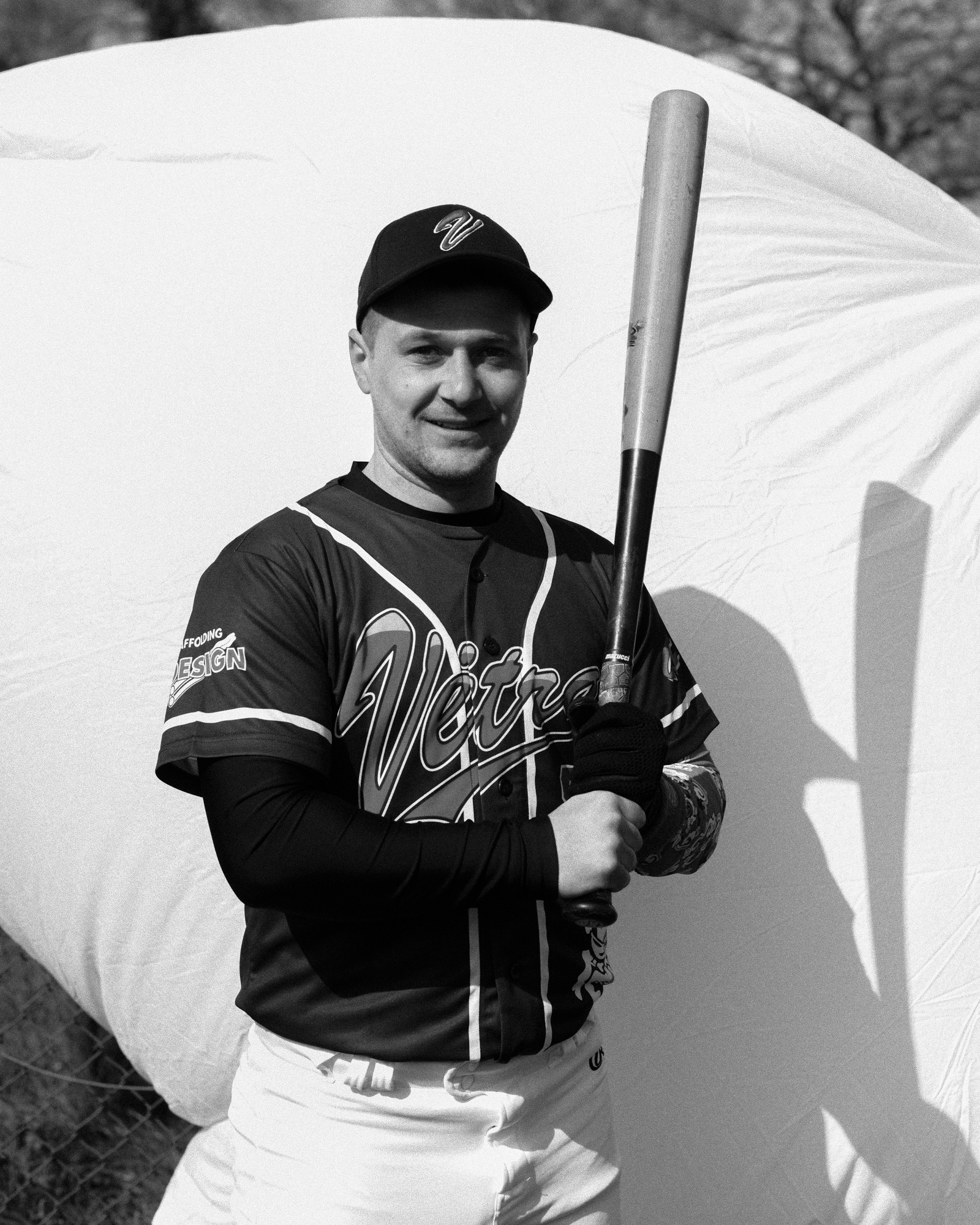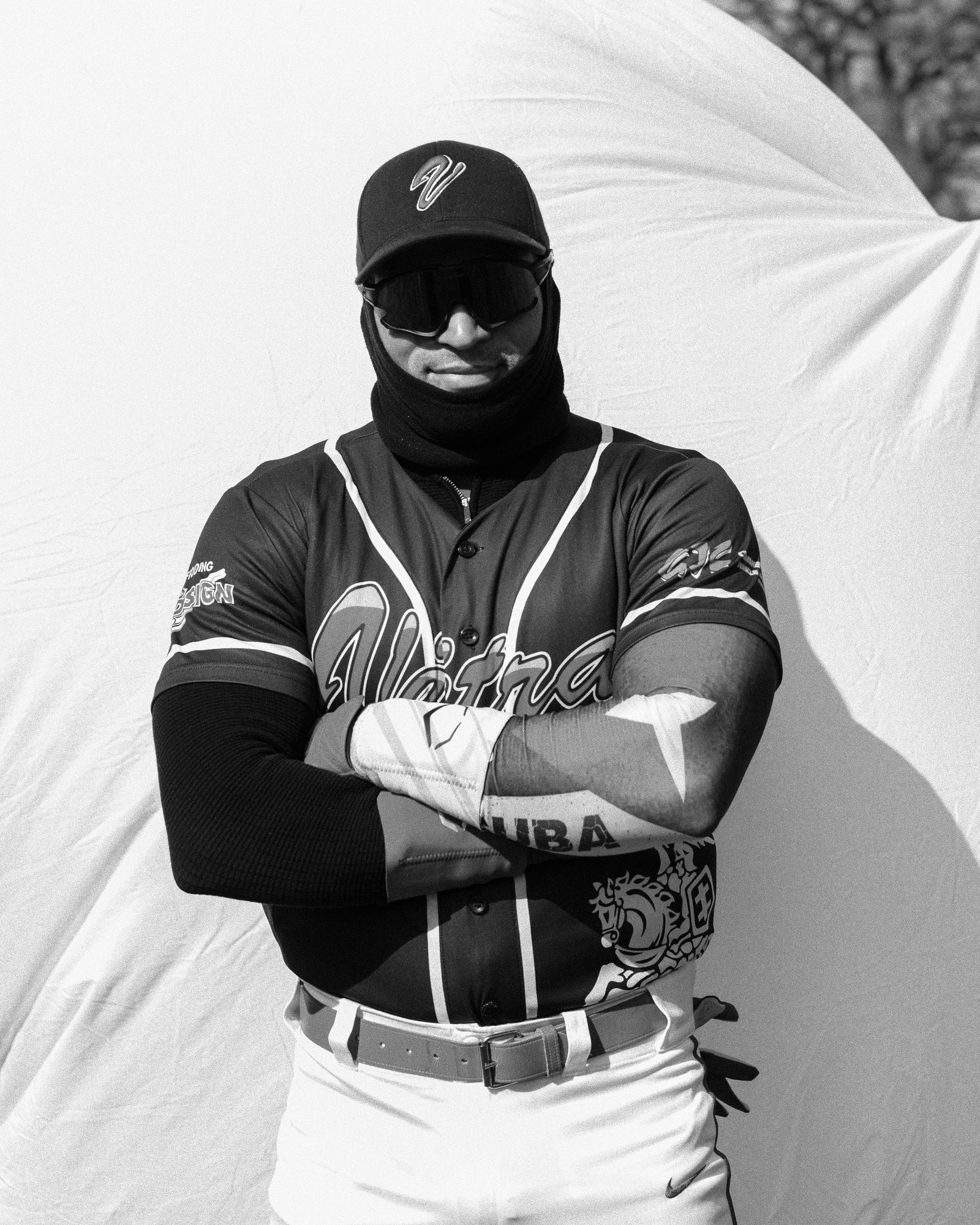Playing Away
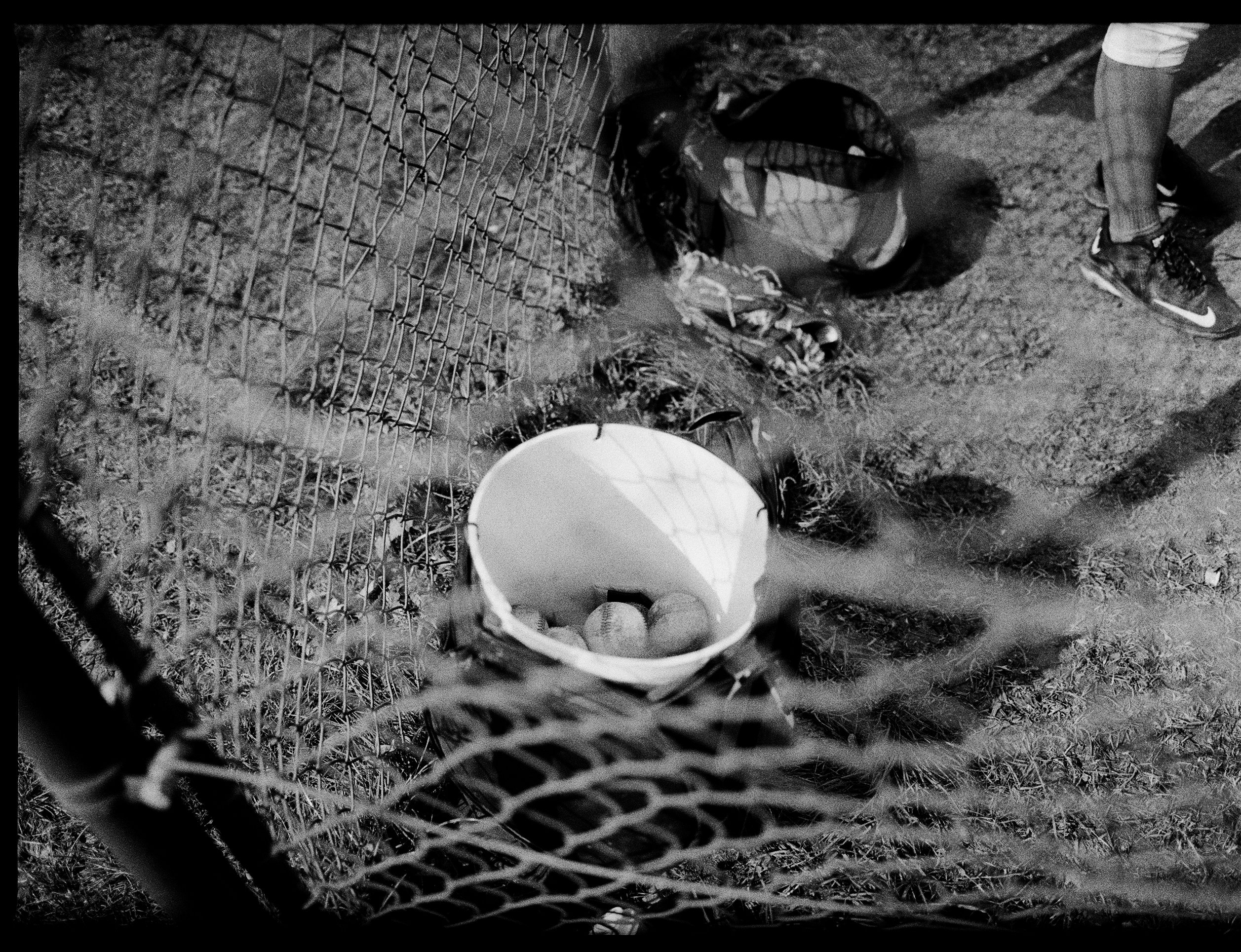
It’s a sunny Sunday morning in April and I’m travelling to a sleepy Hemel Hempstead for a baseball game BC Vėtra v Lancashire Legends. When I get to the grounds, some other teams are playing and practising on the other pitches, but when BC Vėtra arrive soon after, they’re hard to miss. The uniforms, the laughter emanating from their group from afar, and their unique energy.
My curiosity about baseball first began after watching teams playing in Finsbury Park. There was something very striking about the players, their time-capsule uniforms, their movements, familiar to be only from movies - they looked like they came from a different time, a different place. I wanted to capture that. BC Vėtra’s players are in fact from a different place. When I approached one of the teams playing in Finsbury Park to take their portraits, the last thing I expected to learn was that one of the beast teams in their league was a Lithuanian one. I didn’t expect to have such a personal connection, and it drew me even more. The original Vėtra was a baseball team in 1984 in the Lithuanian city of Utena by a man called Valentinas Bubulis. After about 20 years it disbanded, but in 2019 it was revived as BC Vėtra in Bristol by one of their players. Justinas Raupėnas started a baseball team that became a home away from home for many Lithuanian players.
I got in touch with Tadas, the current manager of the team, who told me that several players were part of the original Utenos Vėtra, and now find themselves playing for the Bristol reincarnation, including himself: “Personally, I hadn’t played for ten years, but there are people who hadn’t played in 15 years, or even longer. Given this modest start, it would be impossible for anyone to predict the team’s rise among the ranks of British Baseball. Starting in the A league in 2019, they became known as one of the fiercest new teams around and won the AAA League Championship two years later.
Back in Hemel Hempstead, players start getting dressed, preparing their gear, friends and family helping set everything up, everyone chatting and laughing with everyone else. I meet Tadas by the pitch and he introduces me to some of the players. It’s clear that from the Lithuanian core, Vėtra has expanded to a multinational team. If you go to any Vėtra game, you’ll see some of their jerseys adorned with patches of Mexican, Cuban or Dominican flags. As it turns out, this expansion of Vėtra’s most ambiguous goal and at the same time toughest challenge. Being one of the oldest teams in the league, with an average age of 33 by Tadas’ estimation, makes Vėtra’s success even more inspiring.
Tadas: “The foundation of our team is all Utena people. They have known each other for over 20 years in some cases having played together in Lithuania.”

Another thing you’ll notice when attending one of these games is that it’s far from the fanfare of MLB games. “We truly built this team from scratch, purely driven by our desire,” Tadas tells me. Vėtra players are mostly spread between London and Bristol, where their home court is, and they travel to and fro for practice and all-around England for matches while maintaining regular jobs. The team was self-funded from the beginning, and even now it’s partially supported by sponsors. They have been invited to play in Lithuania to celebrate 100 years of Lithuanian baseball, and to compete in Spain and Italy, but the players have to shoulder the cost that comes with these trips. “We need flight tickets, travel to be covered but it doesn’t work out that way.” The driving force of the team is the love of the game and the close-knit community they have built around it. When the team gets together for a match, it feels like a family weekend out. Players are there with their families, some people are getting ready to play, others are helping with the preparations, and as Tadas says, “It turns out to be like a Sunday picnic.” With every win, the need to grow the team with younger players is stronger. Not only because some players will need to retire from the game soon, but also to build the team’s legacy.
But even after a loss, what remains of Vėtra on and around the pitch is a community ready to be there the next day, and that is what fuels the team’s engine, to go back to practice even when the player hasn’t played in a decade, even when player is pushing 40, even when the travel cost are high and family obligations mount up, to grow the team, to grow the community, to get more people involved, to achieve even more than thought possible a short four years ago.





